S. KOREA REPORTS RECORD 13,012 CASES
입력 2022.01.26 (15:35)
수정 2022.01.26 (16:46)
읽어주기 기능은 크롬기반의
브라우저에서만 사용하실 수 있습니다.
[Anchor Lead]
The spread of the omicron variant is in full force. South Korea reported 13,012 COVID-19 cases on Wednesday, surpassing the 10-thousand mark for the very first time. Authorities are concerned over how large the daily tally may grow. Starting Wednesday, testing and diagnosis rules will change in four regions including Gwangju and Pyeongtaek.
[Pkg]
Omicron is noticeably spreading by the day, with 13,012 new infections being reported on Wednesday. It’s the first time the daily caseload has surpassed ten-thousand since the start of the pandemic.
[Soundbite] Sohn Young-rae(Central Disasters Management HQs) : "The percentage of Omicron cases will continue to rise in the next 2-3 weeks to account for 80-90% of the total. This will affect the number of overall cases."
From Wednesday, the government is implementing new response measures to better cope with omicron. The measures focus on managing high-risk groups. PCR tests will be given to only those at high-risk and designated respiratory clinics will take part in testing. The new rules are first being applied in four regions including Gwangju and Pyeongtaek after which they will expand nationwide likely after the Lunar New Year holiday. Also starting Wednesday and effective nationwide, there are also changes to the isolation period and the definition of fully vaccinated people. Regarding COVID-19 oral medication, the government had lowered the prescription age to 60 from 65 and older. It is now reviewing to include more recipients and lower the age to 50. The government says some 200 people who have taken the pills so far are getting better with no major side effects. On the vaccine front, over 50% of the population have received a booster shot. The government reiterates vaccination is the best defense against omicron and the roll out will continue even during the Lunar New Year holiday.
The spread of the omicron variant is in full force. South Korea reported 13,012 COVID-19 cases on Wednesday, surpassing the 10-thousand mark for the very first time. Authorities are concerned over how large the daily tally may grow. Starting Wednesday, testing and diagnosis rules will change in four regions including Gwangju and Pyeongtaek.
[Pkg]
Omicron is noticeably spreading by the day, with 13,012 new infections being reported on Wednesday. It’s the first time the daily caseload has surpassed ten-thousand since the start of the pandemic.
[Soundbite] Sohn Young-rae(Central Disasters Management HQs) : "The percentage of Omicron cases will continue to rise in the next 2-3 weeks to account for 80-90% of the total. This will affect the number of overall cases."
From Wednesday, the government is implementing new response measures to better cope with omicron. The measures focus on managing high-risk groups. PCR tests will be given to only those at high-risk and designated respiratory clinics will take part in testing. The new rules are first being applied in four regions including Gwangju and Pyeongtaek after which they will expand nationwide likely after the Lunar New Year holiday. Also starting Wednesday and effective nationwide, there are also changes to the isolation period and the definition of fully vaccinated people. Regarding COVID-19 oral medication, the government had lowered the prescription age to 60 from 65 and older. It is now reviewing to include more recipients and lower the age to 50. The government says some 200 people who have taken the pills so far are getting better with no major side effects. On the vaccine front, over 50% of the population have received a booster shot. The government reiterates vaccination is the best defense against omicron and the roll out will continue even during the Lunar New Year holiday.
■ 제보하기
▷ 카카오톡 : 'KBS제보' 검색, 채널 추가
▷ 전화 : 02-781-1234, 4444
▷ 이메일 : kbs1234@kbs.co.kr
▷ 유튜브, 네이버, 카카오에서도 KBS뉴스를 구독해주세요!
- S. KOREA REPORTS RECORD 13,012 CASES
-
- 입력 2022-01-26 15:35:10
- 수정2022-01-26 16:46:08
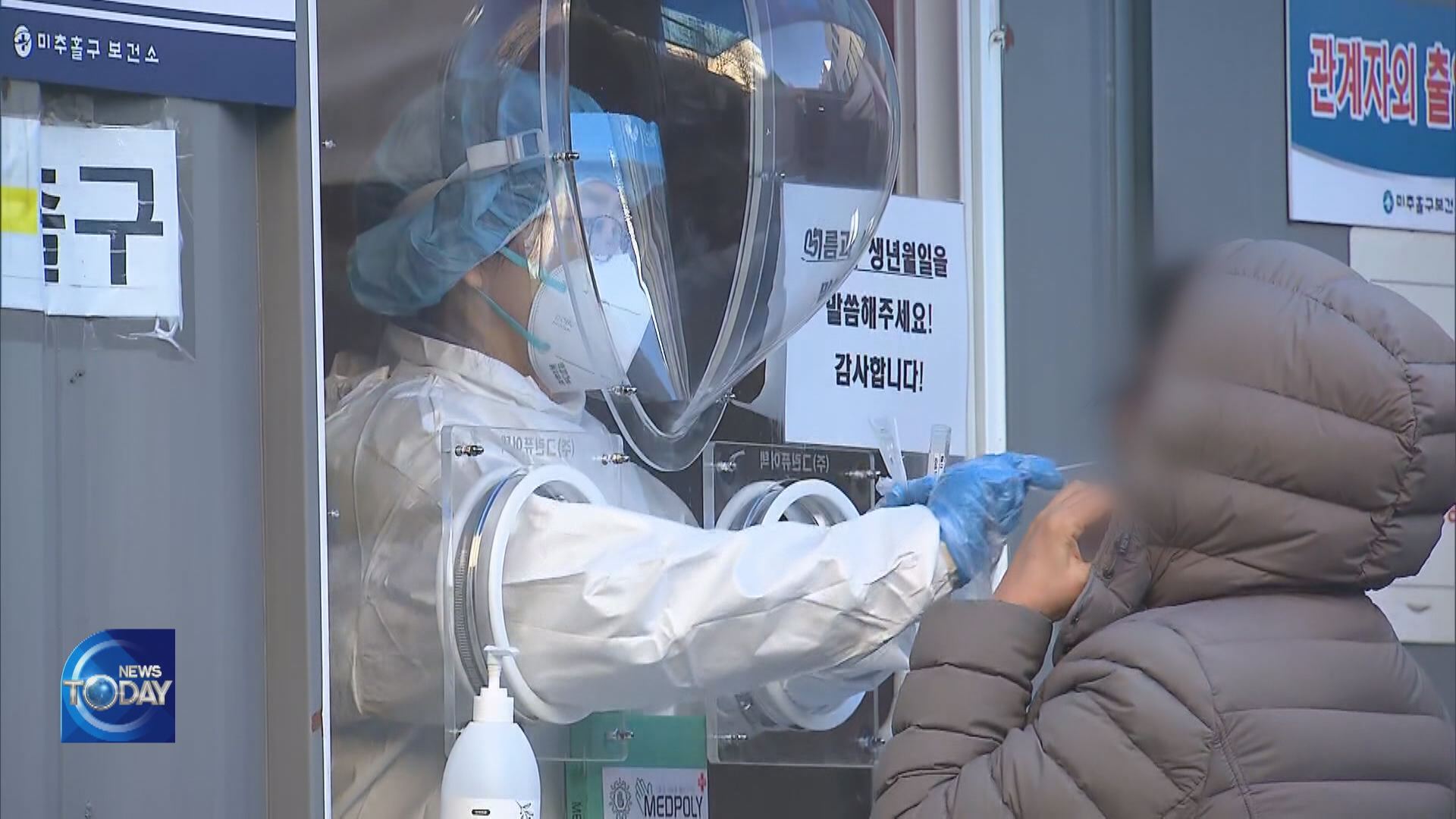
[Anchor Lead]
The spread of the omicron variant is in full force. South Korea reported 13,012 COVID-19 cases on Wednesday, surpassing the 10-thousand mark for the very first time. Authorities are concerned over how large the daily tally may grow. Starting Wednesday, testing and diagnosis rules will change in four regions including Gwangju and Pyeongtaek.
[Pkg]
Omicron is noticeably spreading by the day, with 13,012 new infections being reported on Wednesday. It’s the first time the daily caseload has surpassed ten-thousand since the start of the pandemic.
[Soundbite] Sohn Young-rae(Central Disasters Management HQs) : "The percentage of Omicron cases will continue to rise in the next 2-3 weeks to account for 80-90% of the total. This will affect the number of overall cases."
From Wednesday, the government is implementing new response measures to better cope with omicron. The measures focus on managing high-risk groups. PCR tests will be given to only those at high-risk and designated respiratory clinics will take part in testing. The new rules are first being applied in four regions including Gwangju and Pyeongtaek after which they will expand nationwide likely after the Lunar New Year holiday. Also starting Wednesday and effective nationwide, there are also changes to the isolation period and the definition of fully vaccinated people. Regarding COVID-19 oral medication, the government had lowered the prescription age to 60 from 65 and older. It is now reviewing to include more recipients and lower the age to 50. The government says some 200 people who have taken the pills so far are getting better with no major side effects. On the vaccine front, over 50% of the population have received a booster shot. The government reiterates vaccination is the best defense against omicron and the roll out will continue even during the Lunar New Year holiday.
The spread of the omicron variant is in full force. South Korea reported 13,012 COVID-19 cases on Wednesday, surpassing the 10-thousand mark for the very first time. Authorities are concerned over how large the daily tally may grow. Starting Wednesday, testing and diagnosis rules will change in four regions including Gwangju and Pyeongtaek.
[Pkg]
Omicron is noticeably spreading by the day, with 13,012 new infections being reported on Wednesday. It’s the first time the daily caseload has surpassed ten-thousand since the start of the pandemic.
[Soundbite] Sohn Young-rae(Central Disasters Management HQs) : "The percentage of Omicron cases will continue to rise in the next 2-3 weeks to account for 80-90% of the total. This will affect the number of overall cases."
From Wednesday, the government is implementing new response measures to better cope with omicron. The measures focus on managing high-risk groups. PCR tests will be given to only those at high-risk and designated respiratory clinics will take part in testing. The new rules are first being applied in four regions including Gwangju and Pyeongtaek after which they will expand nationwide likely after the Lunar New Year holiday. Also starting Wednesday and effective nationwide, there are also changes to the isolation period and the definition of fully vaccinated people. Regarding COVID-19 oral medication, the government had lowered the prescription age to 60 from 65 and older. It is now reviewing to include more recipients and lower the age to 50. The government says some 200 people who have taken the pills so far are getting better with no major side effects. On the vaccine front, over 50% of the population have received a booster shot. The government reiterates vaccination is the best defense against omicron and the roll out will continue even during the Lunar New Year holiday.
이 기사가 좋으셨다면
-
좋아요
0
-
응원해요
0
-
후속 원해요
0










![[HEADLINE]](https://news.kbs.co.kr/data/news/title_image/newsmp4/news_today/2022/01/26/10_5381931.jpeg)
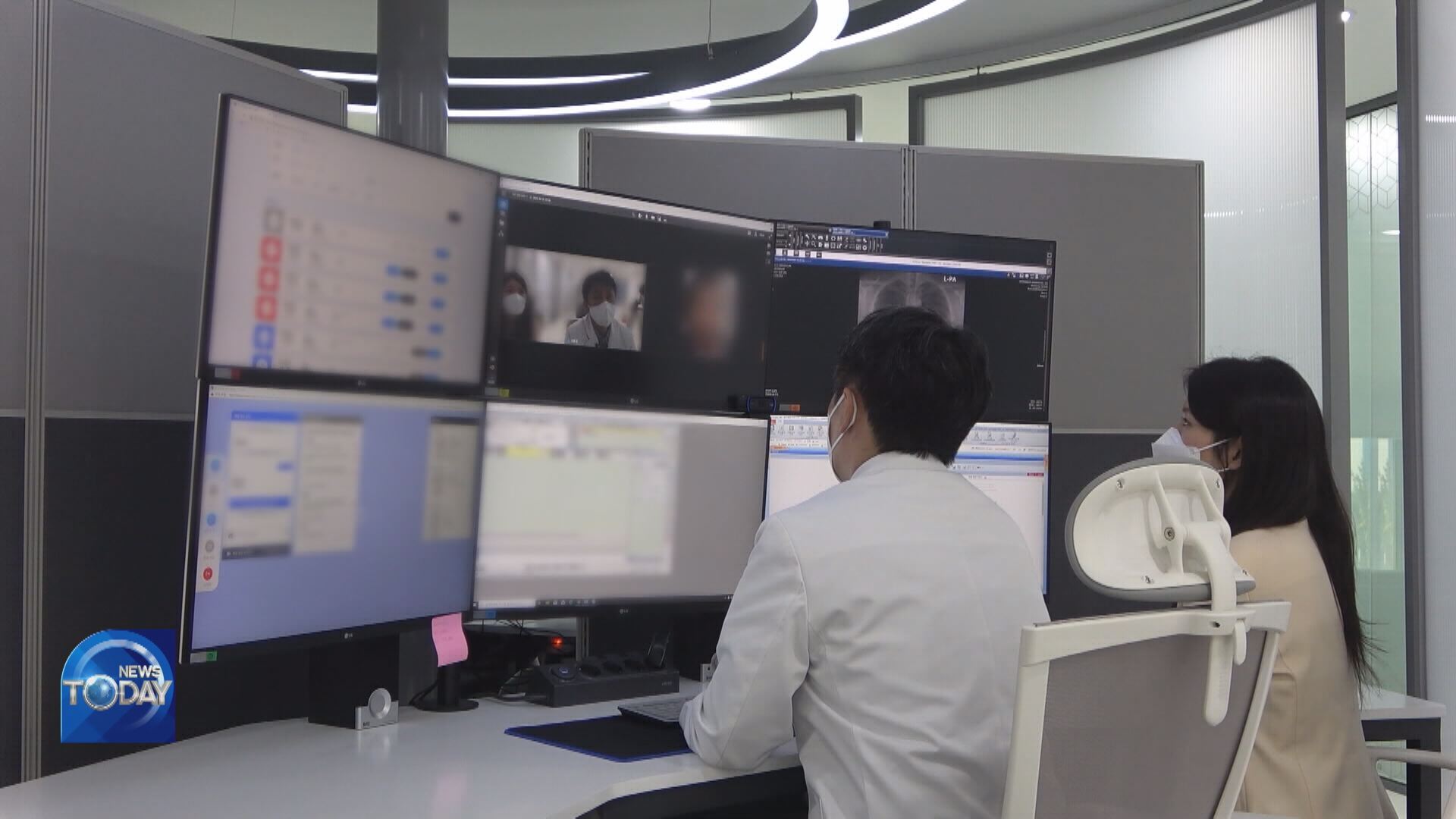
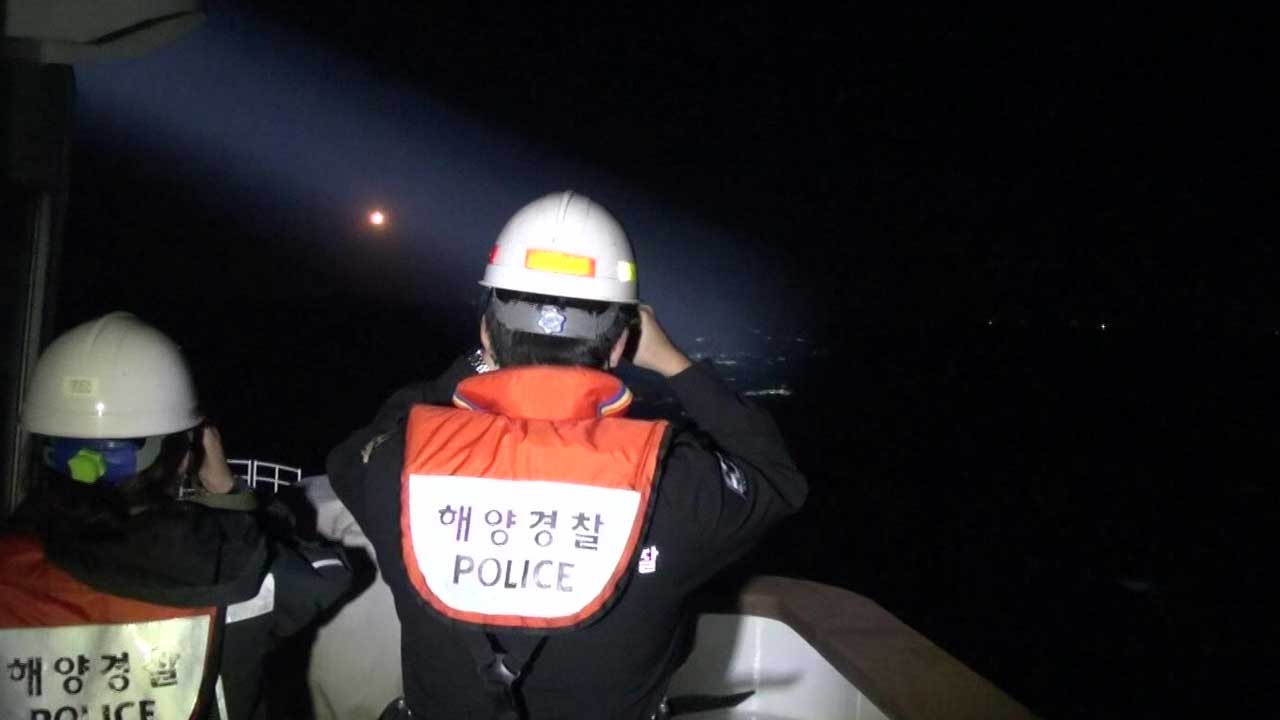
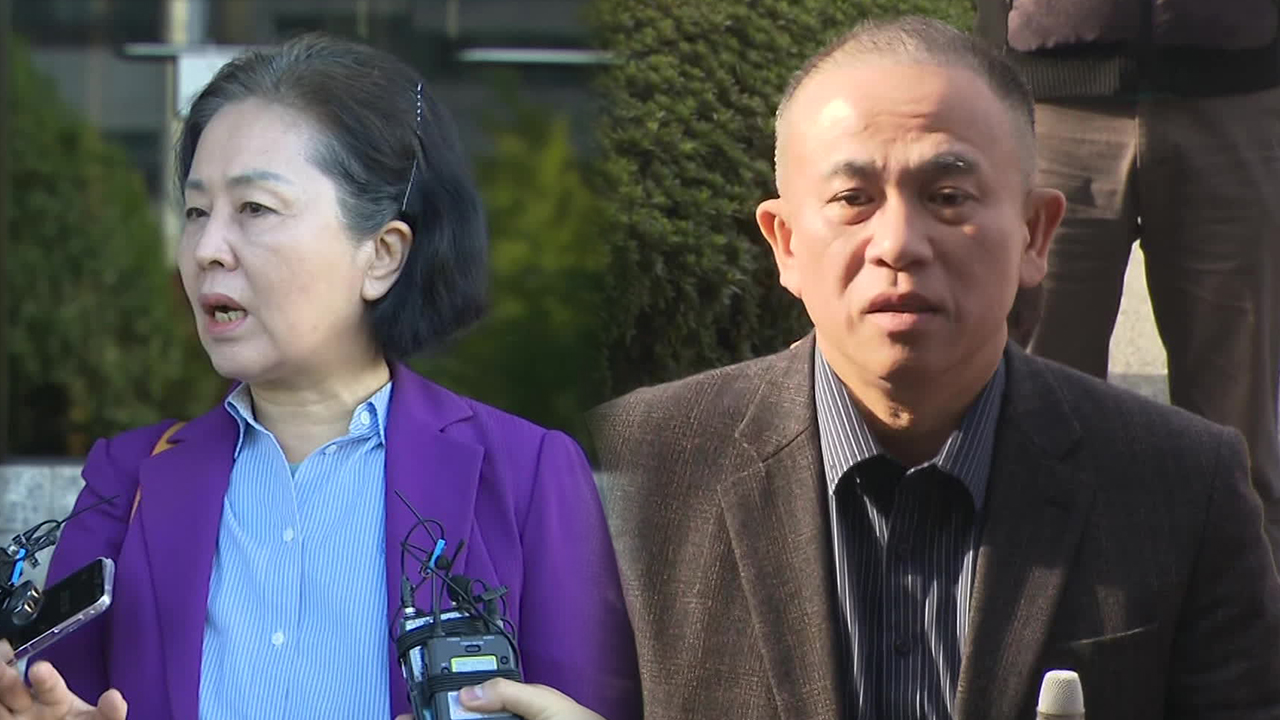

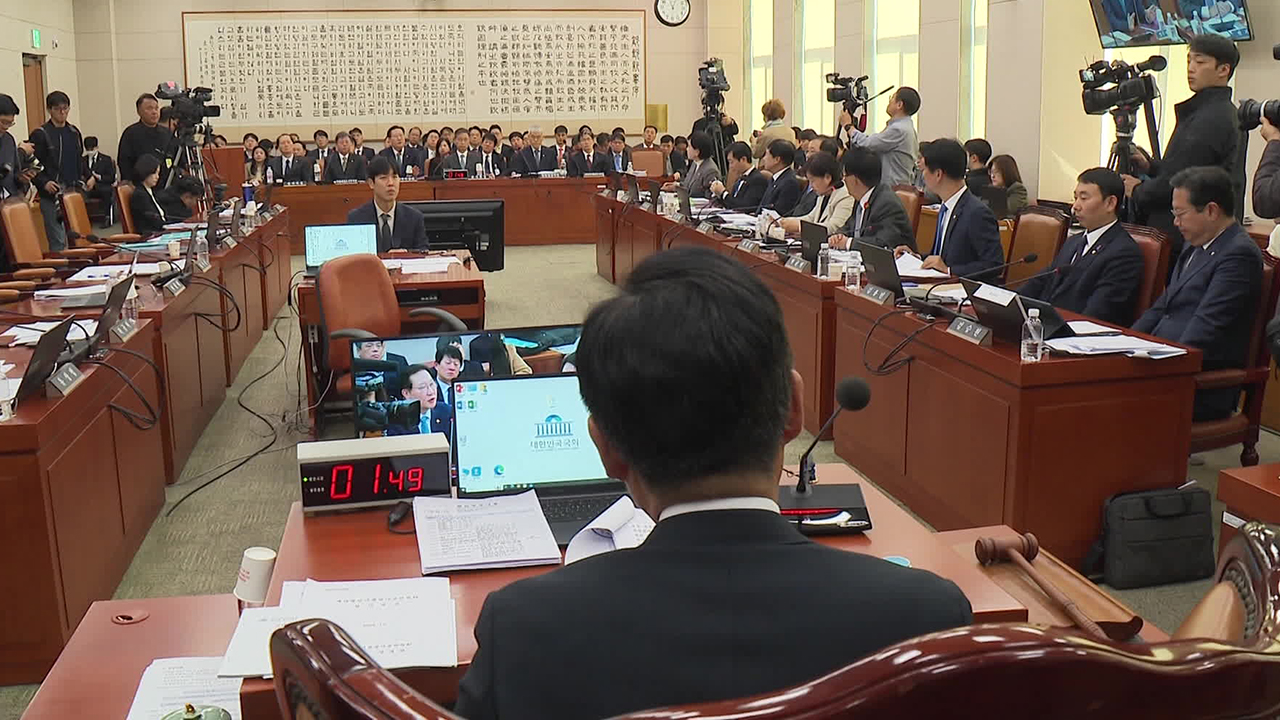

이 기사에 대한 의견을 남겨주세요.